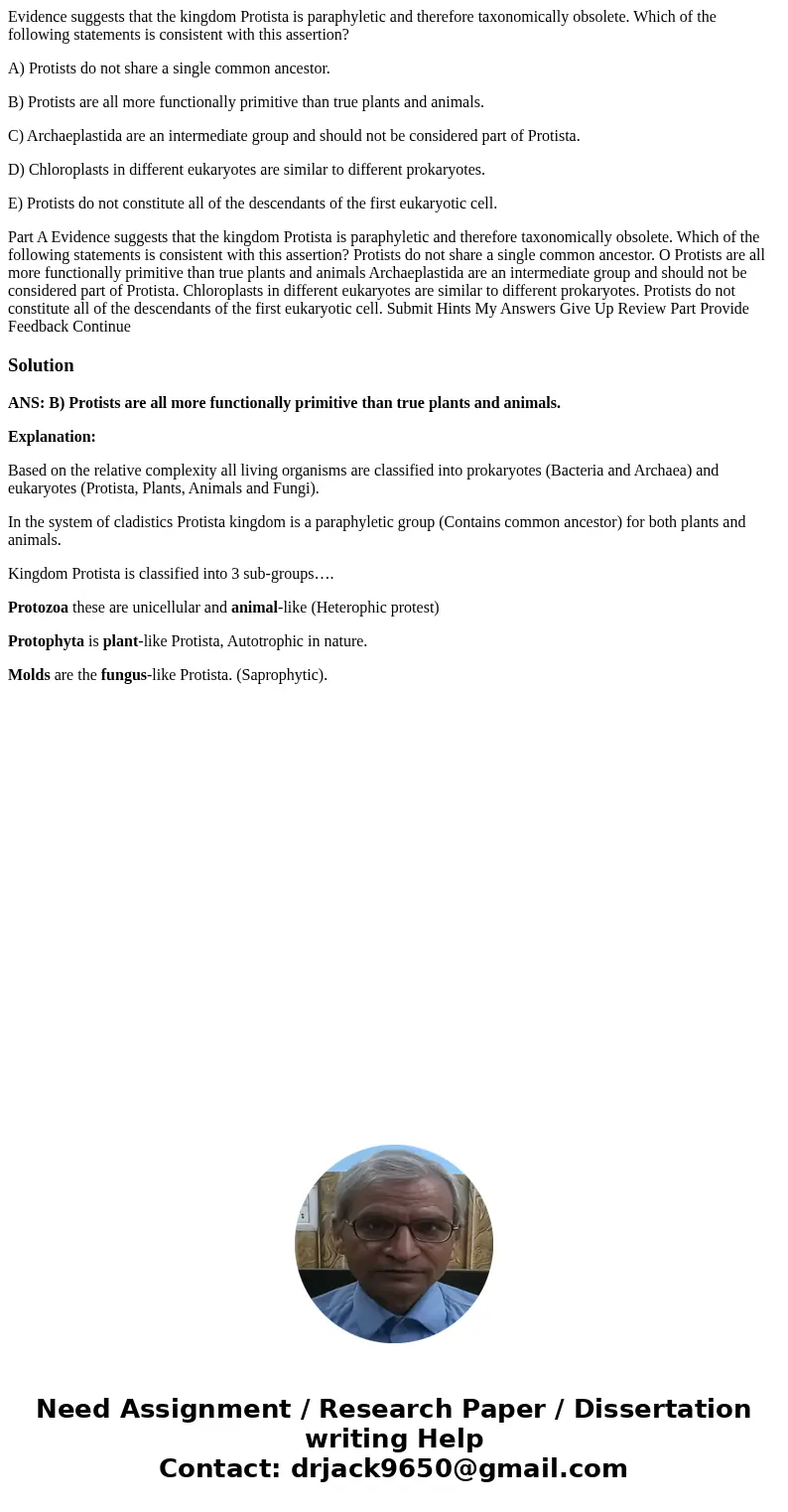Evidence suggests that the kingdom Protista is paraphyletic
Evidence suggests that the kingdom Protista is paraphyletic and therefore taxonomically obsolete. Which of the following statements is consistent with this assertion?
A) Protists do not share a single common ancestor.
B) Protists are all more functionally primitive than true plants and animals.
C) Archaeplastida are an intermediate group and should not be considered part of Protista.
D) Chloroplasts in different eukaryotes are similar to different prokaryotes.
E) Protists do not constitute all of the descendants of the first eukaryotic cell.
Part A Evidence suggests that the kingdom Protista is paraphyletic and therefore taxonomically obsolete. Which of the following statements is consistent with this assertion? Protists do not share a single common ancestor. O Protists are all more functionally primitive than true plants and animals Archaeplastida are an intermediate group and should not be considered part of Protista. Chloroplasts in different eukaryotes are similar to different prokaryotes. Protists do not constitute all of the descendants of the first eukaryotic cell. Submit Hints My Answers Give Up Review Part Provide Feedback ContinueSolution
ANS: B) Protists are all more functionally primitive than true plants and animals.
Explanation:
Based on the relative complexity all living organisms are classified into prokaryotes (Bacteria and Archaea) and eukaryotes (Protista, Plants, Animals and Fungi).
In the system of cladistics Protista kingdom is a paraphyletic group (Contains common ancestor) for both plants and animals.
Kingdom Protista is classified into 3 sub-groups….
Protozoa these are unicellular and animal-like (Heterophic protest)
Protophyta is plant-like Protista, Autotrophic in nature.
Molds are the fungus-like Protista. (Saprophytic).

 Homework Sourse
Homework Sourse